SAP ERP and SAP A1 - Trigger Configuration (Magic xpi 4.13)
You can use the SAP ERP connector to trigger a flow. When used in this way, the SAP ERP connector listens for IDoc type messages from the SAP ERP server. When an IDoc message arrives, Magic xpi creates an XML file containing the IDoc information, and then triggers the flow.
The trigger definition process includes the selection of the IDocs that you want the SAP ERP connector to monitor. To process the received IDoc, you should use the Mapper to choose a schema that is appropriate for the IDoc. A single trigger can be defined to handle multiple IDoc types.
|

|
To receive IDocs, the SAP Java Connector needs the mapping between the SAP Gateway instance and its TCP port. The mapping is defined in your operating system's services file. Depending on your operating system, the services file can be found at:
On machines where the SAP GUI is already installed, the complete SAP services list is updated by the SAP GUI installer. On other machines, it needs to be updated by manually adding the required mapping to the services file. The complete SAP services list can be found here.
|
The SAP ERP Trigger Configuration dialog box contains the following fields:
|
|
|
|
Service Definition
|
|
Message Type
|
Enter the Message Type name, or click  to get a list of Message Types from the SAP ERP server. You can then select the required Message Type from the list. to get a list of Message Types from the SAP ERP server. You can then select the required Message Type from the list.
|

|
The SAP ERP trigger requires a SYNCH Message Type to be added in the Partner Profile under the Outbound Parameters' section, in order to establish a successful connection on the SAP server.
|
|
|
IDoc Type
|
Enter the IDoc Type name, or click  to get a list of IDoc Types from the SAP ERP server. You can then select the required IDoc Type from the list. to get a list of IDoc Types from the SAP ERP server. You can then select the required IDoc Type from the list.
|
|
Extension
|
If the IDoc contains extensions, you can click  to access the IDoc Extensions list. You can select the required extension from the list, which contains the extensions received from the server. to access the IDoc Extensions list. You can select the required extension from the list, which contains the extensions received from the server.
|
|
ALE Update Status
|
Select Yes or No to define whether you want to update the status of the processed IDoc in the SAP ERP server at the end of the flow.
|
|
Result Definitions
|
|
Store trigger IDoc in
|
Click  to open the Variables List. Select the location where you want to store the IDoc that is generated by the trigger. to open the Variables List. Select the location where you want to store the IDoc that is generated by the trigger.
|
|
Store trigger information in
|
Select one of the following from the drop-down list to define the storage format for the information generated by the trigger:
The data will be received in the following structure:
<Transaction ID> - <message type> - <Idoc type> - <extension>.
Click  to open the Variables List. Select the location where you want to store the information that is generated by the trigger. to open the Variables List. Select the location where you want to store the information that is generated by the trigger.
|
Click OK to save the trigger definition. If the schema does not exist, Magic xpi retrieves the relevant information from the SAP ERP server, and builds an appropriate schema.
Alternatively, you can click Cancel to exit without saving the changes.
In addition, you can:
-
Click New to create a new line in the table.
-
Click Delete to delete a selected line in the table.
-
Click Refresh XSD to get the IDoc schemas for all of the selected IDoc types.
To use the SAP ERP connector as a trigger:
-
Define an SAP ERP resource in the Settings dialog box's Resources section. This allows you to create the required connections to SAP databases. For more information on how to do this, click here. You cannot continue with the next step until you have done this.
-
Define an SAP ERP service in the Settings dialog box's Services section. For more information on how to do this, click here. You cannot continue with the next step until you have done this.
-
Drag the SAP ERP connector to Magic xpi's Trigger area. When you do this, the Properties pane for the connector opens.
-
In the Setting section, select the required Service Name from the drop-down list.
-
Double-click or right-click on the connector and select Configuration from the context menu to open the SAP ERP Trigger Configuration dialog box. Enter the relevant information.
-
When you have entered the relevant information in these parameters, click OK to save the information and to exit the SAP ERP Trigger Configuration dialog box, or click Cancel to exit without saving.

